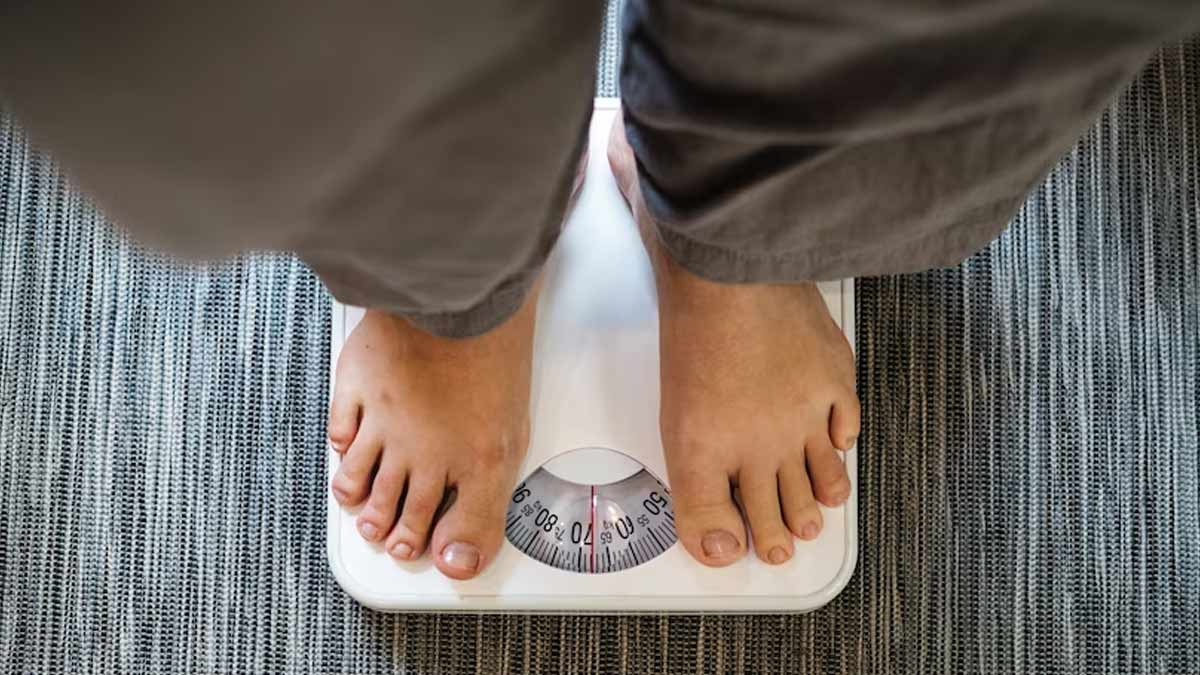
A balanced diet, portion control, and mindful eating are extremely important when it comes to maintaining healthy weight. Additionally, you must invest your time in keeping physically active and being consistent at what you do. But what when all of these strategies fail? You’re doing everything right but somehow it does not deliver results. That’s when it is time to seek medical advice. Weight gain even with healthy eating could be something more serious and may require examinations and testing. We spoke to two experts to understand the same.
Possible Reasons Why You’re Not Losing Weight Even After Eating Healthy

A Body Mass Index (BMI) of over 25 is considered to be overweight and over 30 is a marker of obesity, as per the World Health Organization (WHO).
"From 1975 to 2016, the prevalence of overweight or obese children and adolescents aged 5–19 years increased more than four-fold from 4% to 18% globally," the global health body shares. While lifestyle habits are a significant contributor to the condition, in certain cases, weight gain can be associated with medical problems, according to Mayo Clinic.
Also Read: Experiencing Weight Loss Without Trying? Here Are The Possible Causes
Dr Shobha Subramanian-Itolikar, Consultant Physician, Fortis Hospital, Mulund, says, “Thyroid disorder like hypothyroidism, which causes thyroid hormone deficiency in the body, could lead to weight gain or difficulty in losing weight, even after eating healthy.”
In addition, factors like Polycystic Ovary Disease (PCOD) in females and Obstructive Sleep Apnoea (OSA) in males can also increase the risk of obesity and unexplained weight gain. In some people, Cushing syndrome, Prader-Willi syndrome and other conditions can also cause obesity, says Mayo Clinic, adding, problems like arthritis can also lead to decreased activity, which may result in weight gain.
Tests That Can Help Identify Potential Causes

Dr Meenakshi Mohan, Consultant Pathologist, Neuberg Pulse Diagnostics, Kolkata, suggests various underlying medical conditions can contribute to unexplained weight gain, which is why taking necessary tests can help identify the cause. These include:
Thyroid function tests
The thyroid gland plays a crucial role in regulating metabolism. “If the thyroid gland is underactive, also called hypothyroidism, it can lead to a slow metabolism, making it easier to gain weight,” says Dr Mohan.
The doctor recommends taking thyroid function tests, such as TSH (Thyroid Stimulating Hormone) and T4 (thyroxine) levels, which can help assess the thyroid's functioning and identify any issues that may be contributing to weight changes.
Insulin resistance and glucose tolerance test
Insulin resistance occurs when cells in the body become less responsive to insulin, leading to elevated blood sugar levels. This condition can promote fat storage and hinder weight loss efforts, even with a healthy diet. “A glucose tolerance test can determine how the body responds to glucose intake and assess insulin sensitivity. Identifying insulin resistance can help in the early management and prevention of weight gain,” Dr Mohan shares.
Hormone panel

Imbalances in hormones like cortisol, leptin, ghrelin, and sex hormones oestrogen, progesterone, testosterone, can influence weight gain and fat distribution. According to the doctor, a comprehensive hormone panel can provide valuable insights into any hormonal imbalances.
Also Read: Hormonal Imbalance: Symptoms, Causes, and Treatment
Food sensitivity testing
In some cases, weight gain is associated with underlying food sensitivities or intolerances. Food sensitivities can trigger inflammation and water retention, leading to temporary weight gain. While healthy foods may not directly cause weight gain, a person may unknowingly consume foods to which they are sensitive. Identifying and eliminating these trigger foods from the diet can lead to weight loss and improved well-being.
Gut health evaluation
The gut microbiome plays a critical role in digestion, nutrient absorption, and metabolism. “Imbalances in gut bacteria can influence weight gain and impact overall health. Tests that analyse the composition of gut bacteria can provide insights into any dysbiosis or imbalance that may be contributing to weight gain, despite a healthy diet,” the doctor notes.
Bottomline
If you’re eating healthy and still gaining weight, then it is time to visit a doctor. Experts suggest it could be a sign of underlying medical problems and taking necessary tests can identify the cause. Remember, while you must continue eating healthy, it should not be considered the only silver bullet against diseases.







